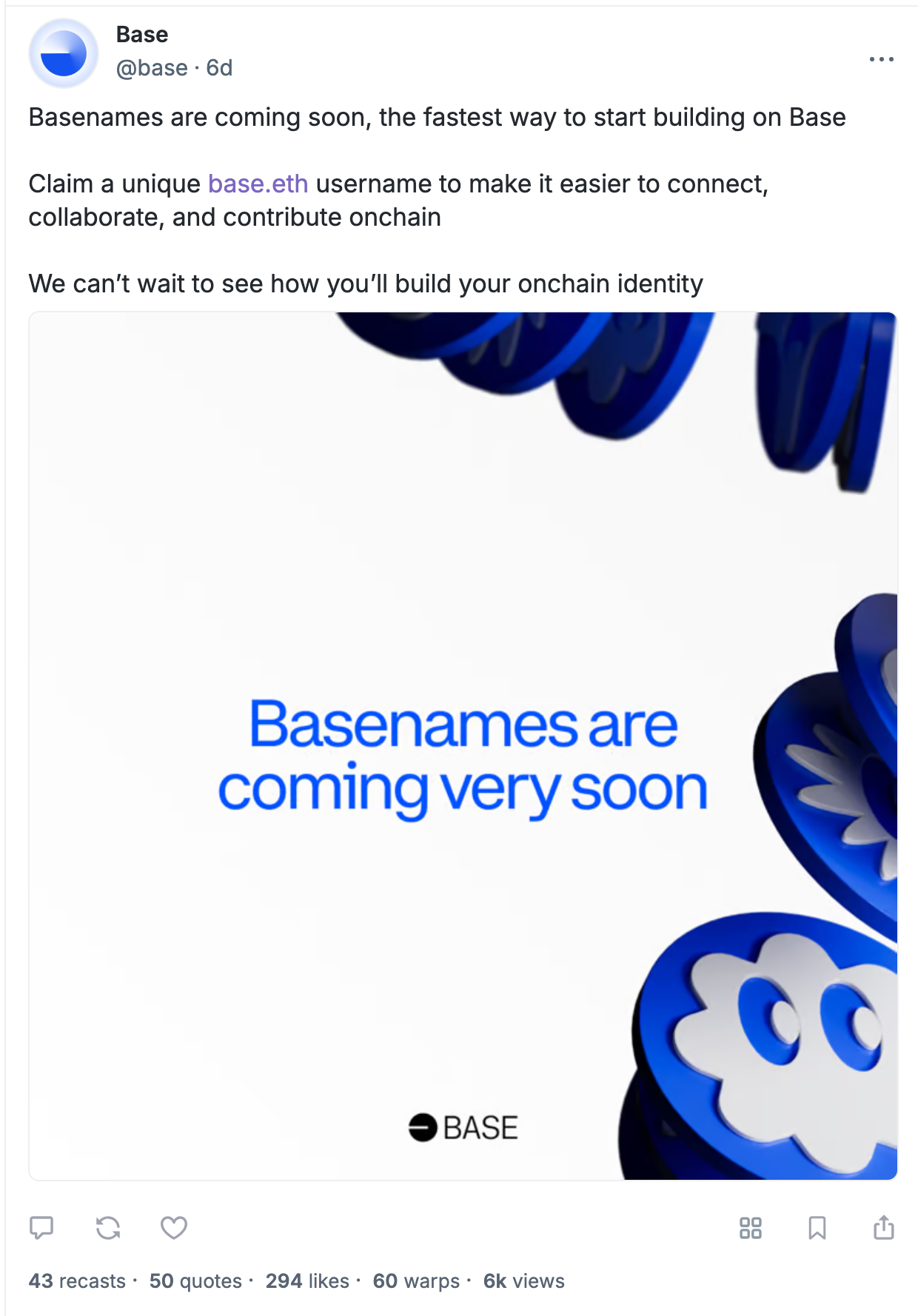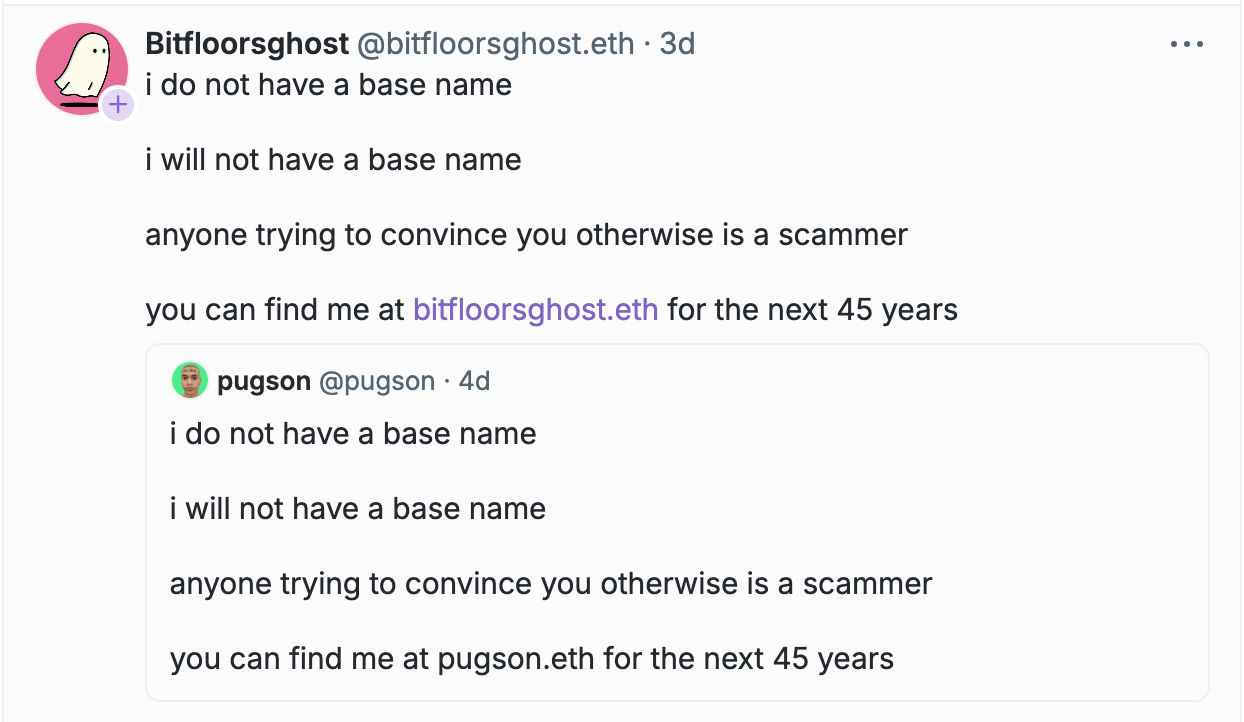What are web3 domains? | The early fragmentation of a web3 identity
Recent rollouts of new kinds of naming services in the web3 space have prompted questions about how many digital identities we really need.

We will dive into what a web3 domain is and what the sudden proliferation of naming services might mean for the fragmentation of digital identity.
But before we take that dive, it’s worth commenting on the crypto market activity over the past few days, especially as we inch closer to Q4.
Historically, the first Q4 following the Bitcoin halving is exciting (in a good way) for investors.
Remember: Bitcoin leads the crypto market, and there are some interesting dynamics related to mining cost and hash rate that create a lag between the halving and price movements.
Although the intro of the Bitcoin ETF and other market changes might translate to a departure from historical behavior.
Here’s a backgrounder on some of the halving dynamics:

Because they are a risk investment asset, crypto is notoriously sensitive to the news cycle. Good news, which signals positive financial or economic trends, usually results in a bigger appetite for riskier or speculative assets like crypto.
The opposite is also true. Bad news or greater economic uncertainty generally leads to plummeting prices, a trend we have seen over the past few weeks.
In the early days, the fact that digital assets would somehow be immune to the psychology and financial forces that move larger markets was a major selling point. But as crypto markets mature, they behave more and more like traditional financial assets.
This week, as the Fed announced a long-awaited interest rate rollback, the markets acted accordingly.
It sounds like there was a little technical glitch with the embedded form, meaning a lot of people didn’t see it.
Here is a link to a Google form.
For everyone that did fill it out, thank you so much. If you have a minute (it only takes 60 seconds), filling out this form helps.
Why web3 domains matter?
There's a lot of chatter about the rollout of the Base naming service.
The intro of the new service makes it possible for people to buy a customized web3 domain, like yourname.base.eth.

A web3 domain is quickly becoming a fundamental building block to the way the new internet will function.
Why?
The basic reason is that a web3 domain makes it easier to manage a crypto wallet and a digital identity.
The idea is that a web3 domain can replace wallet addresses or key signatures that are traditionally long strings of numbers and letters.
Instead of having to track or input a long alphanumeric, you could create an easy-to-remember, human-readable handle, like danielmcglynn.eth.
Already, we are seeing this basic building block become more and more useful in the real world.
When you sign into decentralized social media platforms like Farcaster, for example, you have the option of signing in with your web3 domain (actually, to be specific, you can sign in with a .eth domain).
When transacting in crypto, it makes it way easier to connect a web3 domain name to a wallet and then tell the recipient your web3 address instead of some random string of numbers, which then requires checking and double-checking that it was shared and input correctly.
I recently used my web3 domain name to invoice for client work, and it made the whole process simpler for both sides. No more second-guessing or double-checking. My address was linked to me, memorable, and easy to input.
With a little imagination, it doesn’t take much to see why owning a web3 domain that connects to your identity could be super useful in the future.
By setting up an address such as yourname.eth, you will have the ability to use something as simple as an email address as a checking account, a business storefront, an invoicing tool, or a hub for all of your digital collectibles.

Simplify, simplify: Do too many web3 domains miss the point?
By now, hopefully, we are on the same page about the significance of a web3 domain. For sure, owning a web3 domain is an important step for moving onchain.
One of the reasons we are talking so much about web3 domain names this week is because Base just announced the availability of a new naming service.
This means that now you can own a whole new galaxy of web3 naming options. But almost as soon as the Base names launched, people started asking about the necessity of it all.

Maybe owning a network-specific domain name will have real applications or be more useful than just having a .eth address. I just can’t see the immediate need or application.
The whole thing is starting to feel like a speculative gold rush of sorts where people are buying up and squatting on names just in case they become valuable in the future or in case they can sell the name to someone a little slower to act.
We saw the same thing happen throughout the history of web2.
For now, it feels like having more web3 domain names just feels like clutter or like buying vanity plates for a car. People do it, and it’s cute or clever on some levels but also completely unnecessary.
So the takeaway is that the for sure owning a web3 domain that you will use as a hub for getting onchain makes sense and is a critical first step.
But what’s less clear is the need for many web3 domains spread across a bunch of subnetworks...
Sharing is caring. Tell the ones that need to know.